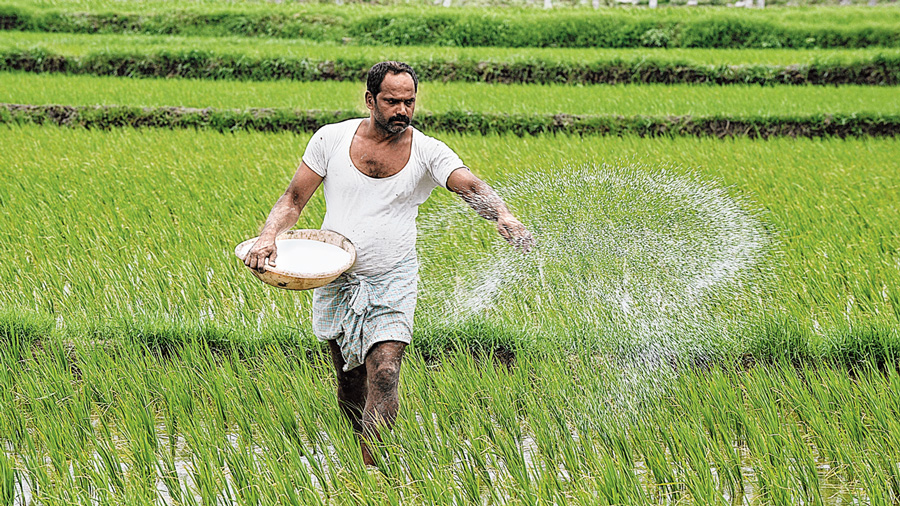The government has hiked the subsidies for DAP and some other non-urea fertilisers by Rs 14,775 crore to keep the price of the crop nutrients for farmers low despite the rising costs. After urea, di-ammonium phosphate (DAP) is the most widely used fertiliser in the country.
Last month, at a high-level meeting chaired by Prime Minister Narendra Modi, it was decided that the subsidy on DAP fertiliser be increased by 140 per cent.
Minister of state for chemicals and fertilisers Mansukh Mandaviya told reporters on Wednesday that the Cabinet Committee on Economic Affairs (CCEA) has approved the increase in subsidy amount for DAP fertilisers.
“Farmers will continue to get DAP at the old rate of Rs 1,200 per bag,” he said.
The move will help to ensure that farmers gets the key soil nutrient at the old rate despite the surge in global prices.
According to Mandaviya, the subsidy for DAP fertilisers has been increased to Rs 1,200 per bag from Rs 500 per bag.
The minister added that the additional subsidy burden on the exchequer will be Rs 14,775 crore. The government has allocated nearly Rs 79,600 crore for fertiliser subsidies in the 2021-22 Budget.
Last year, the actual price of DAP was Rs 1,700 per bag, on which Centre was giving a subsidy of Rs 500. The companies were, therefore, selling the fertiliser to farmers for Rs 1,200 per bag.
Drug regulator wants price cut
Drug pricing regulator NPPA has asked pharmaceutical companies and medical device makers to reduce prices on products on which GST has been lowered.
In a notification, the National Pharmaceutical Pricing Authority (NPPA) noted that a change in tax rates has an impact on the maximum retail prices (MRP) of various drugs and formulations.
“Recalling or re-labelling or re-stickering on the label of the container or pack of the already released stocks in the market is not mandatory if manufacturers are able to ensure price compliance at the retailer level through issuance of a revised price list,” it noted.
According to DPCO 2013, MRP of drugs and formulations are inclusive of taxes. Therefore, any downward change in tax or GST rates should be reflected in MRP and the benefit of the reduction should be passed on to the consumers, it noted.











